Changes of the Season Teaching Resources for 2nd Grade
- Plus Plan
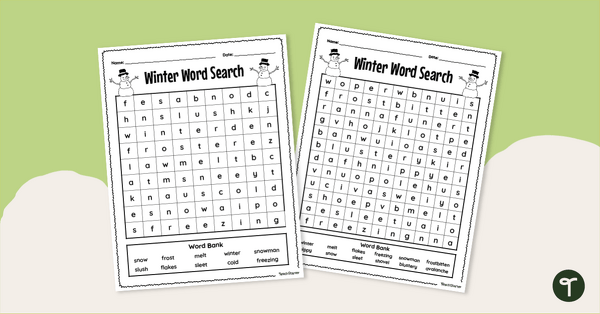
Differentiated Winter Word Search Printable
Add a frosty twist to your seasonal studies with a winter word search printable teaching resource.
- Plus Plan
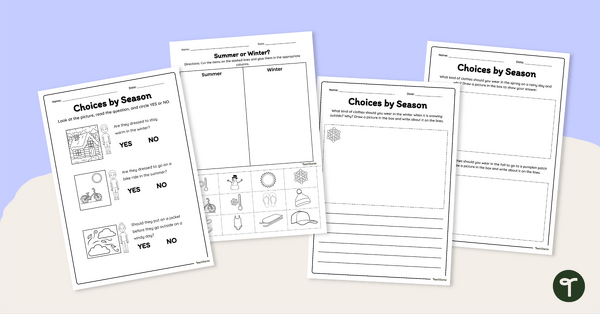
Seasons, Weather and Our Choices Worksheets
Hand out these eight great seasons worksheets to help your students learn all about the seasonal changes and the way they affect our everyday choices.
- Free Plan
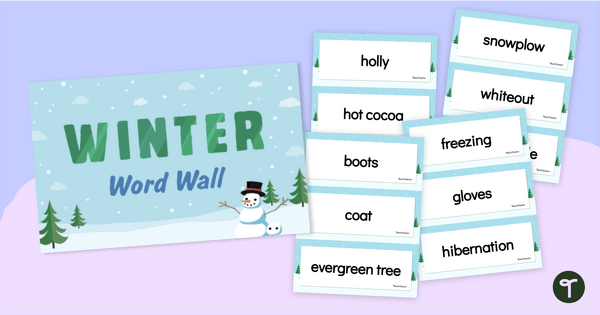
Winter Words - Vocabulary Word Wall
Bring a bit of chill to your classroom with a set of 45 vocabulary cards containing words related to winter.
- Plus Plan
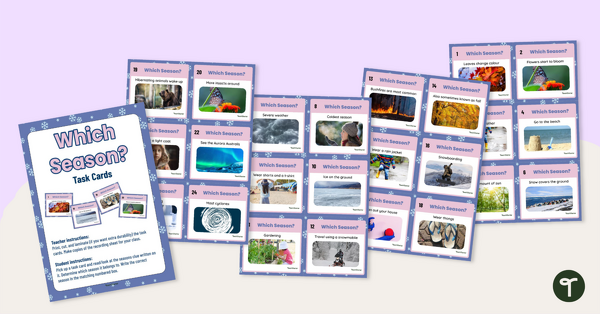
Season Characteristics Task Cards
Give your students the clues and watch them select the mystery season with this set of 24 task cards.
- Plus Plan
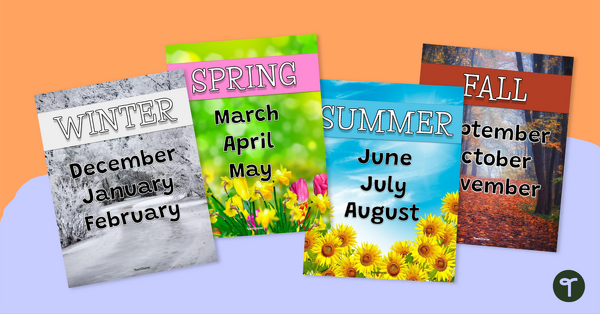
Seasons and Months Posters
Use these four months and the seasons posters to help your students to learn the seasons and their corresponding months.
- Plus Plan
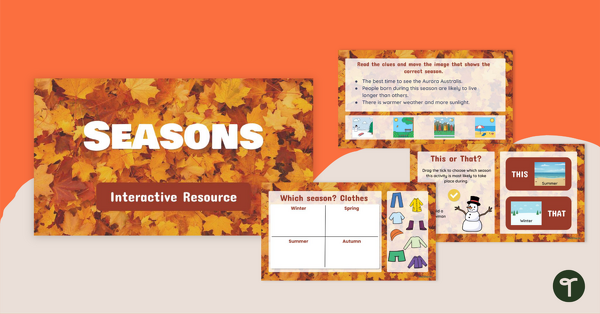
Characteristics of Seasons Interactive Activity
Use this activity-packed interactive resource to explore with your students the names and characteristics of summer, autumn, winter and spring!
- Plus Plan
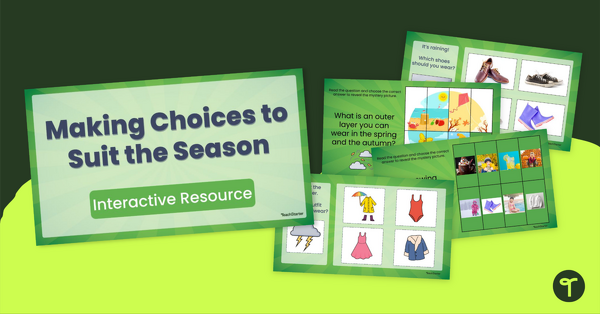
Seasons, Weather and Our Choices Interactive Activity
Complete this whole-class interactive activity to teach students the connection between the seasonal conditions and their daily choices.
- Plus Plan
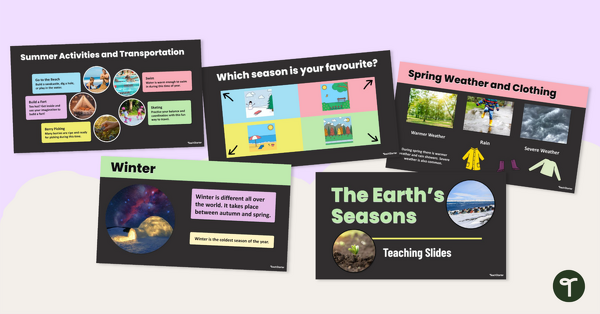
The Earth's Seasons Teaching Slides
Use this fact-packed digital teaching resource to show your students the names and characteristics of Earth’s four seasons.
- Plus Plan
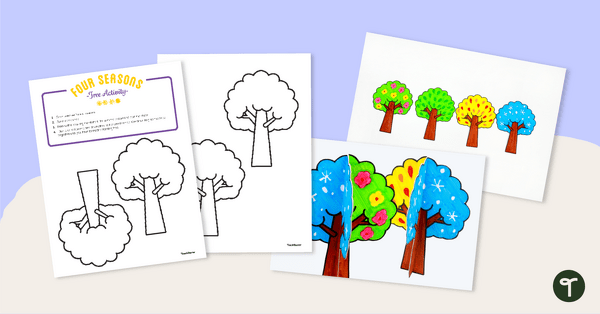
Four Seasons Tree Activity
Use this template with your students to create a visual display of the different seasons.
- Plus Plan
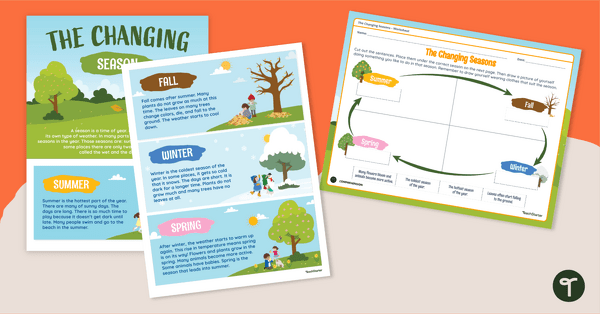
The Changing Seasons Comprehension Worksheets
Read and write about the changing seasons with a comprehension passage and worksheet.
- Plus Plan
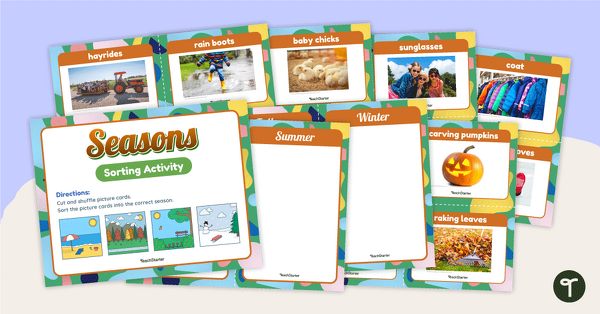
Seasons Sorting Activity
Teach students in K-2 the proper clothing, activities, and objects for different types of weather with this four seasons activity.